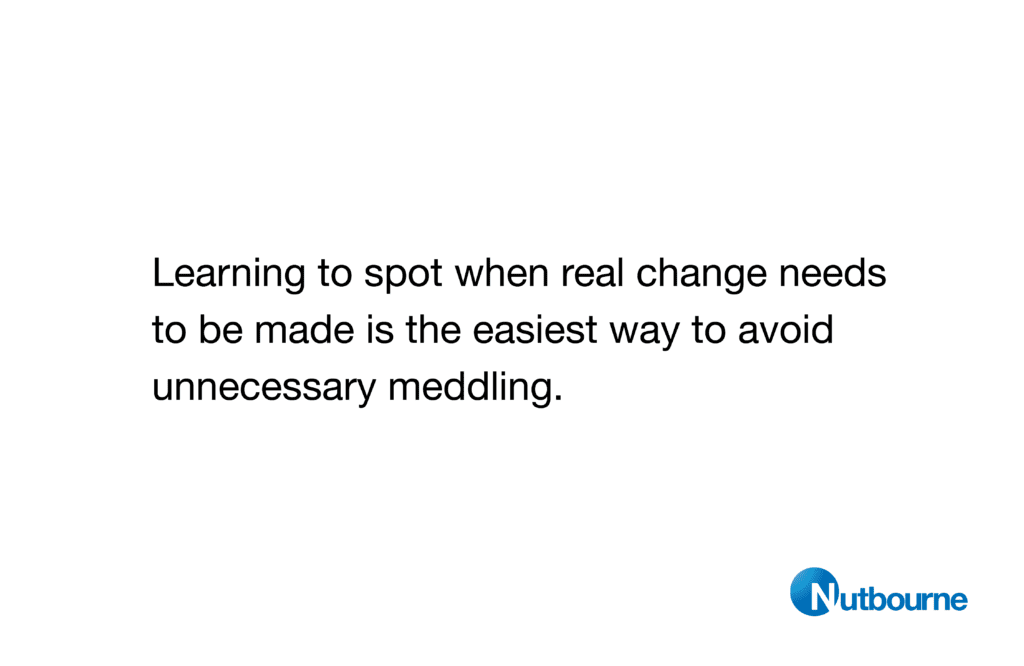In an era of hyper-productivity, time hacks and blistering efficiency, you’d be forgiven for thinking that small business owners ought to be hands on 24/7. Nutbourne IT services are here to tell you otherwise! We do get it of course, after all, time is money, everything is scalable and you can always make improvements. And whilst those may be true, there is an altogether more subtle art that can help your business to succeed. And it’s one that you won’t find many business gurus talking about.
Professionals Tell Explain How Not To Be So Hands On
“As an MD in IT services London, I’ve always been very hands on,” says Nutbourne’s Marcus Evans. “But I’ve learnt over the last 12 months that I don’t always need to be. There’s an art to knowing when to make changes, but equally, there’s an art to knowing when not to make changes. It’s not something that comes up in business 101 or on an MBA, but it’s certainly a skill all business owners should cultivate.”
It’s a pertinent message that has been brought to the forefront by the global pandemic. Businesses across the world are restructuring their teams, rethinking strategies and adjusting to an uncertain future. For many, the overwhelming urge will be to intervene at every level, to hunt around the business and find areas to change or tinker with. But Marcus says that at a certain point, that will do more harm than good.
“One of the dangers of being the managing director of a company is that you can’t resist the temptation to tinker. But at a certain point, you’re going to have to put faith in the changes you’ve made. As well as the people you have entrusted to carry them out. In a post-pandemic environment, that can be a scary proposition because your instinct is to do as much as you can to keep your business going.”

The Difference Between Tinkering and Essential Changes
Spotting the difference between tinkering and essential change is easier said than done. The needs of each business are subjective and its challenges, course of action and approach to change will be dictated by those needs.
“It’s easy to assume that something is wrong with your business if it isn’t exactly where you want it to be,” Marcus adds. “But it’s worth remembering that your business can still be strong, robust and able to grow even if it isn’t exactly where you want it to be.”
“There’s a sound analogy from the medical profession that supports this. In hospitals, they often have patients that present with very minor symptoms who they can’t find a diagnosis for. These patients are passed from department to department and deteriorate. Nobody is sure what is wrong with them.”
“And what these patients need is to be left alone for 24 or 48 hours. And once they settle, it is usually the fact that they have been prodded, poked and tested that has made them worse. Once that stops, things go back to normal, and the initial minor symptoms have passed. I find running an IT Services Londoncompany is very much like that. Once you set things in motion, you have to leave them alone. Let them build momentum and do what they’re meant to.”
When To Intervene
Learning to spot when real change needs to be made is the easiest way to avoid unnecessary meddling. Cash-flow, sales figures and budgets give a clear, factual account of how the business is performing and offers early signs that your intervention is required. It’s usually followed by clear signals on the ground.
“If the communication from a department completely stops and you don’t know what’s happening in that department, it’s a sign that the clear lines of communication are breaking down,” Marcus says.
“You should always be able to find out what is happening, simply by asking. And if it stops, what that tends to mean, is the person who’s running that department is maybe a bit behind or up against it. They’ve managed to stall communication so they don’t have to tell you, or simply don’t have time. So that’s a problem that will require your intervention.”
In fact, people are a very good indication of unrest and will offer you clear indications when intervention is needed. Discontent, he says, will manifest in increased sick days, vocal complaints and is often characterised by apathy towards aspects of the job. From clients, it’s a breakdown in communication or conversely persistent complaints. In the end, knowing when to intervene is a matter of separating fact from fiction.
When Should You Intervene?
“A very simple heuristic is to ask if you are seeing real problems,” Marcus says. “Recurring and regular complaints from clients, persistently unhappy staff and decreasing numbers are all rooted in facts that are hard to explain away easily. Those are all indicative of real events, things that need your intervention.”
“Most of the time, those aren’t prevalent and so your best course of action is to let your business be. That’s what we implement at Nutbourne IT services London. Allow your decisions to take seed and allow your company to grow – and act only when you have to. But when you do, act decisively and quickly, it’s all a matter of balance.”
Get in contact with Nutbourne IT services
If you want to find out more information on how Nutbourne can be of assistance to your business then head over to our services page to see what changes we can make to aid and protect your systems and networks. Or to speak to one of our dedicated and experienced team members then head over to our contact page.
